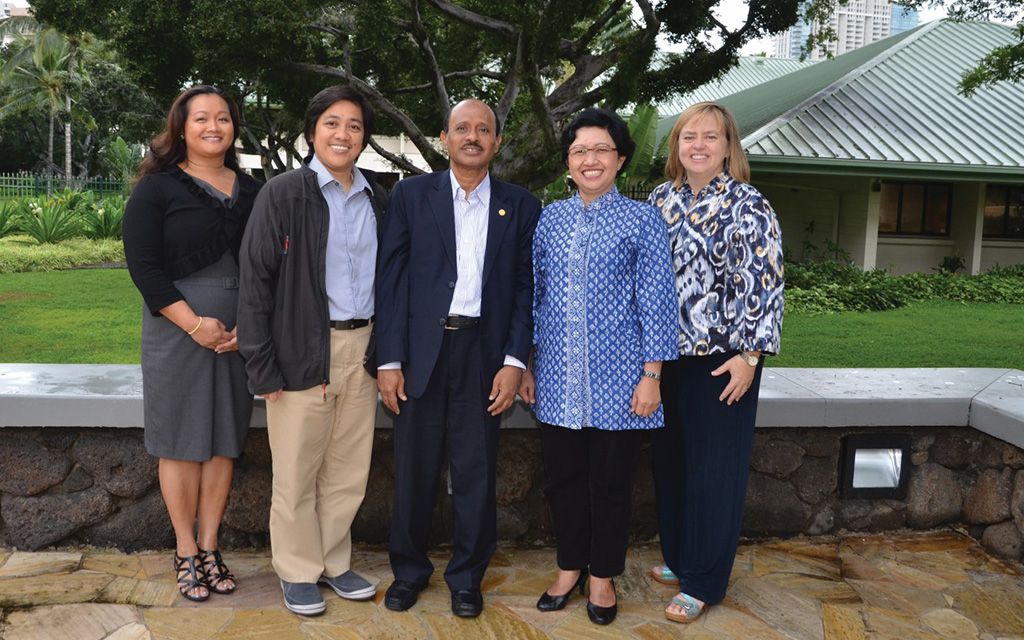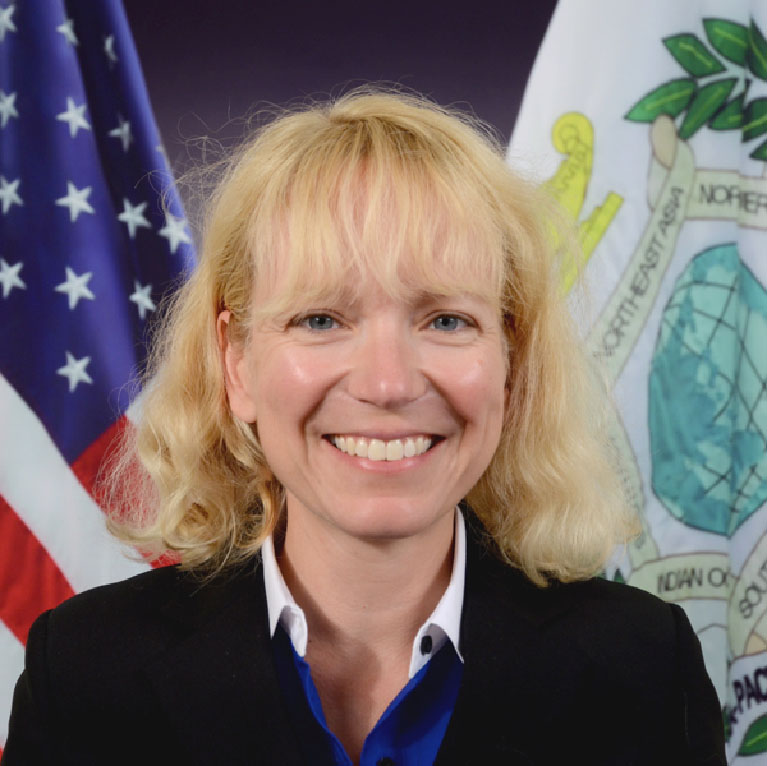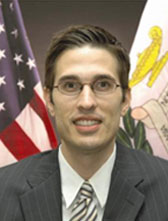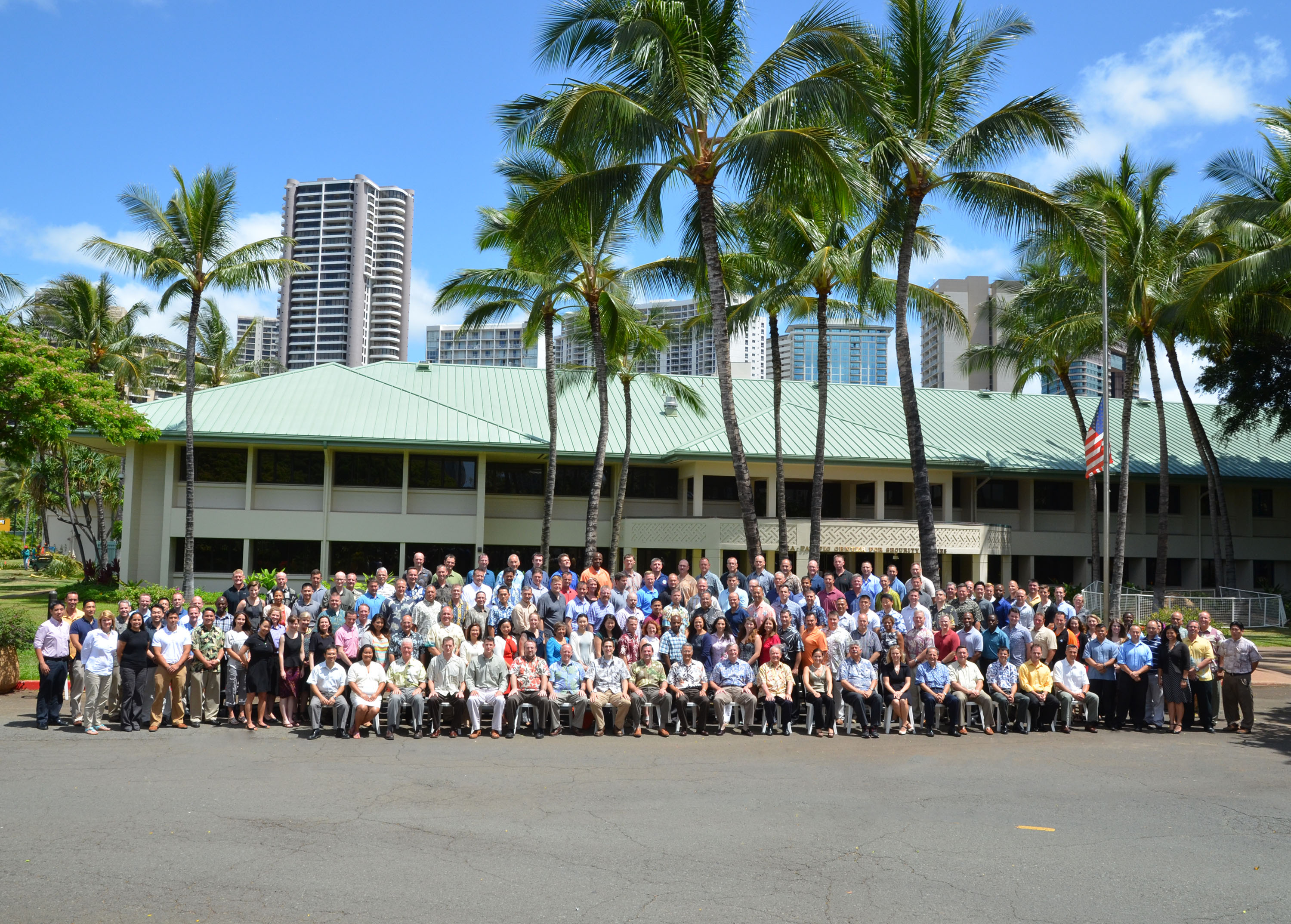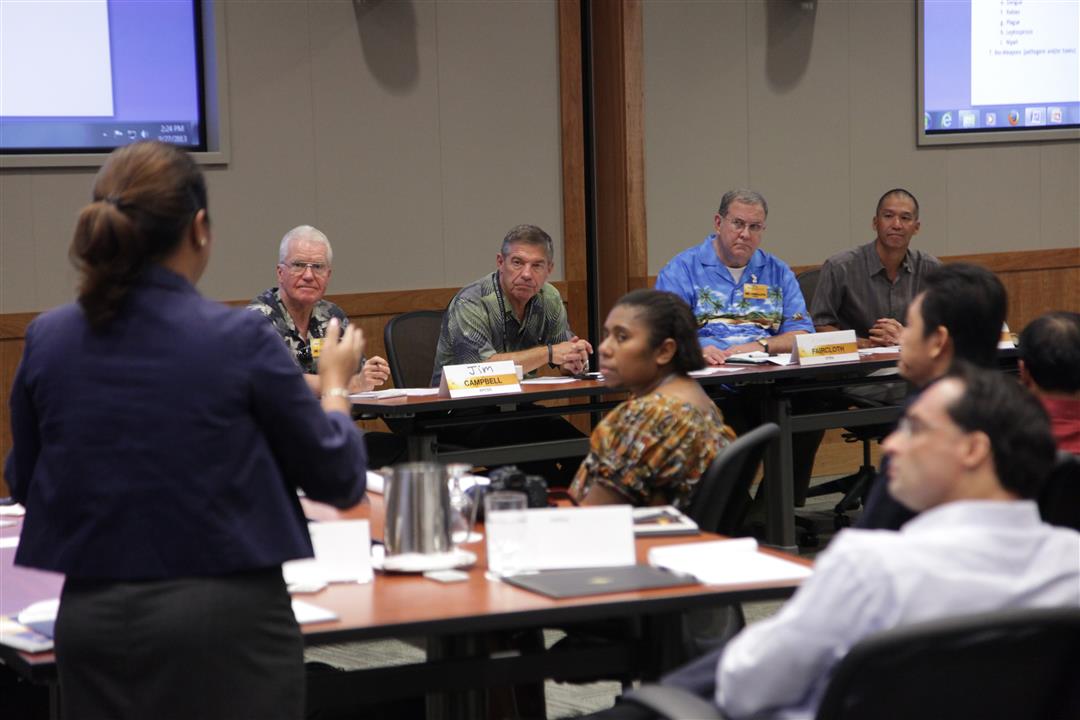APCSS Faculty
APCSS publishes Women, Peace, & Security Strategy
This week the Asia-Pacific Center for Security Studies unveiled a new strategic policy statement in support of the National Action Plan on Women, Peace, and Security (WPS). The strategy outlines APCSS’ commitment to fostering an inclusive security sector through engagement and executive education of security practitioners in the Asia-Pacific Region. During ASC14-1 three Fellows completed special projects related to Women, Peace and security. Pictured with WPS project leads Lt. Cmdr. Dara Kollasch and Dr. Lori Forman are Deputy Police Chief Jean Salvador (Philippines), Lt Colonel MD Masum (Bangladesh), and Ms. Sri Rumiati (Indonesian National Police) According to Navy Lt. [...]


